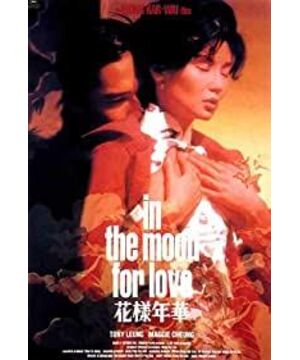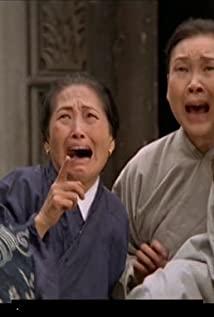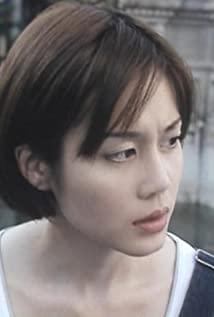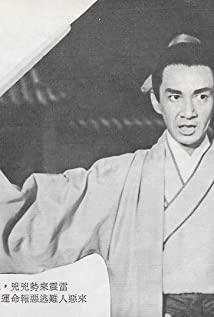If there was a time of year, men would wear it on a tie and women would wear it on a cheongsam. Su Lizhen wears this dress to the people she likes, so she has to dress up so beautifully when she goes to the shop.
Zhou Muyun and Su Lizhen have passed each other so many times, but they stood together because of their partners' cheating. When they were together, they acted in many scenes. Mr. Zhou played Mr. Chen, and Mrs. Chen played Mrs. Zhou. Zhou Muyun is always fake when he acts, but he is very real outside the scene, and Su Lizhen is too serious when he acts because she doesn't dare to be real outside the scene. Zhou Muyun threw her a question in reality, she hesitated to answer, but she showed her true feelings when acting. During the confrontation with her husband during the rehearsal, Su Lizhen shed tears, but I believe that only half of the tears were for Mr. Chen, and the other half was reserved for Zhou Muyun. After all, she still cried on Zhou Muyun's shoulder in the end. It's just that Zhou Muyun played Mr. Chen at that time. He thought that Su Lizhen regarded herself as Mr. Chen, but she actually thought of him Zhou Muyun from Mr. Chen. The answer he wants may be revealed years later, but unfortunately, the answer will expire.
The scene of the two of them in the rain is a perfect symbol of their situation. Su Lizhen was trapped in the rain, while Zhou Muyun was soaked. He went back to pick up his umbrella and wanted to save her, but she was afraid of other people's gossip and let him go first. Zhou Muyun stayed behind and stayed with her until the rain stopped. But that was the last time he waited for him, when the rain stopped, he really left first and went to Singapore. Zhou Muyun is a good person. He gave Mr. Chen a light slap when he acted, and left a tearful shoulder for Su Lizhen after the performance. He held an umbrella to save people, but he couldn't save himself, so he was willing to wait with others. In fact, he also knew that he was soaking wet anyway, so it would be fine to wait a little longer. When they were parting, Su Lizhen heard a piece of "Love in the Mood" directed to her. The radio said that Mr. Chen, who was far away in Japan, ordered it. I firmly believe that it was actually ordered by Zhou Muyun. Without Zhou Muyun, how could Su Lizhen hear the love of the flower?
I actually hate this kind of story of mutual love and misses. It's just a pity that the ending of the movie is popular now, so there are a lot of such plots. If the complete comedy is comfort, then the complete tragedy is pain. Comfort is hard to remember, pain is something people try to forget. And this incomplete, unhappy, regretful ending is itching, which is always disturbing and unforgettable. It's a trick the filmmakers play. This kind of story seems to be a poem that ends with a comma. People look at the blank space behind and always want people to fill in something, but if they do, it is not a poem.
I hate stories like this, the kind of hate that I like in my heart. It's annoying because I've never been able to understand the reason for missing out. I thought that love should be a very simple thing. Say it if you like it, and be together if you agree. There shouldn't be so many so-called choices. I think that love is enough, fate is enough, Singapore has also gone, Su Lizhen has called, as long as she speaks a little bit on the phone, maybe the story will become more comfortable. What inexplicable reason made her hang up after being silent for a while, I can't figure it out, I don't think it is inevitable at all, I think all regrets are accidental, otherwise it can't be called regret. Everything "should have been done" made me angry.
Such a story usually arranges a reunion after a long absence, and there must be a meaningful smile, but the reunion of the old man is only a reunion after all, not a continuation. Wong Kar Wai made the two reunite many times. He also took a lot of verses after the commas, but he wrote them on white paper with white chalk. The poetry is far from over, but the word is over. Their reunion is separated by one generation after another, and it is not only them who come and go in the story. It suddenly dawned on me that I didn't have to dwell on why I missed it, it was just a story. Maybe love is really that simple, but this story is not necessarily about love. When we talk about love, we recall a certain period of our time in the Mood for Love. We are always looking for something to describe this love, but often ignore that love itself can be a metaphor.
View more about In the Mood for Love reviews











